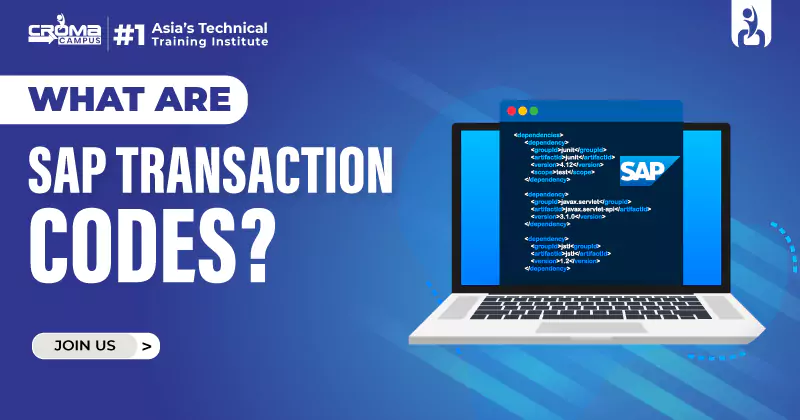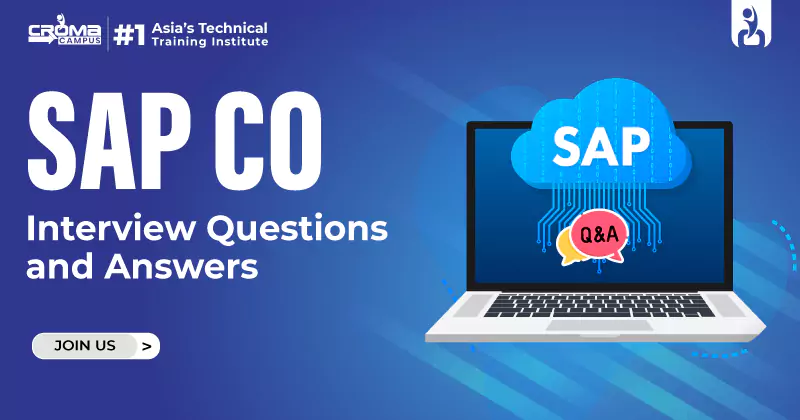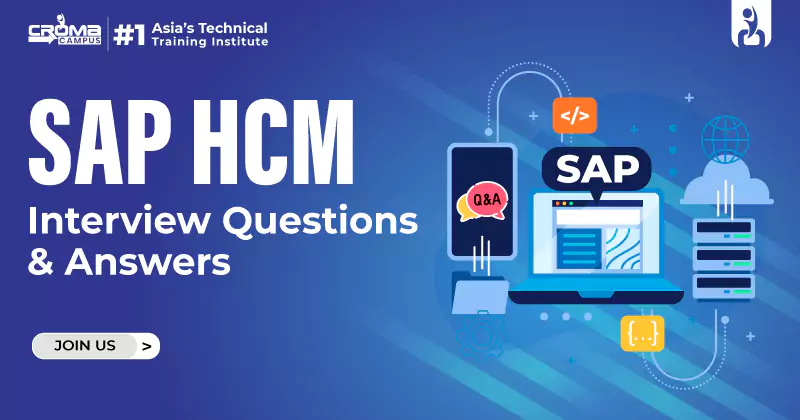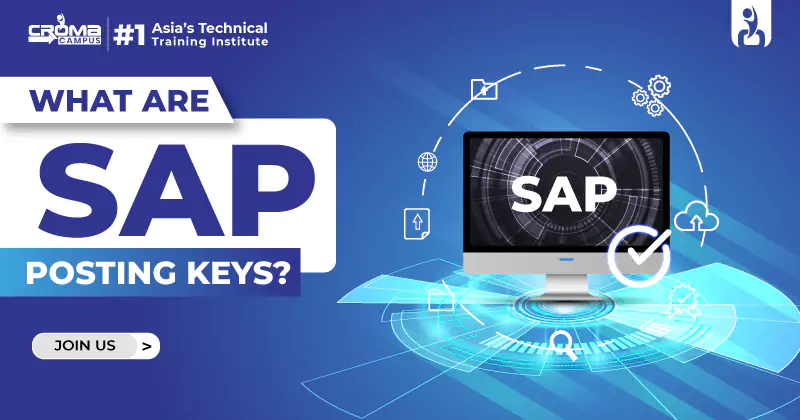What Is SAP SCM And Its Significant Features?
4.9 out of 5 based on 8574 votesLast updated on 20th Jun 2024 13.36K Views
- Bookmark

SAP SCM optimizes logistics and operations with features like demand planning, supply network planning, and order fulfillment.

In the world of modern business, managing supply chains efficiently is crucial. Companies need to ensure that their products are available to customers on time, at the right place, and in the right quantity.
This is where SAP Supply Chain Management (SCM) comes into play. SAP SCM is a comprehensive suite of tools designed to manage and streamline all supply chain processes. In this blog, we'll explore what SAP Supply Chain Management is and highlight its significant features.
Understanding SAP SCM
SAP SCM, or SAP Supply Chain Management, is an advanced software solution developed by SAP SE. It integrates various processes involved in the supply chain, including procurement, manufacturing, distribution, and sales. The primary goal of SAP SCM is to provide real-time visibility, improved collaboration, and enhanced decision-making capabilities across the entire supply chain network.
Key Modules of SAP SCM
- Supply Chain Planning (SCP)
This module focuses on demand planning, supply network planning, and production planning. It helps companies forecast demand, plan production schedules, and optimize inventory levels to meet customer requirements efficiently.
- Supply Chain Execution (SCE)
SCE encompasses logistics execution, warehouse management, and transportation management. It ensures that products are stored, moved, and delivered to the right locations in a timely and cost-effective manner.
- Supply Chain Collaboration (SCC)
Collaboration is vital in modern supply chains. SCC facilitates communication and collaboration with suppliers, partners, and customers. It enables seamless information exchange and enhances overall supply chain visibility.
- Supply Chain Coordination (SCCo)
This module helps coordinate various activities within the supply chain, such as production, procurement, and logistics. It ensures that all processes are aligned and working together harmoniously.
- Supply Chain Visibility (SCV)
SCV provides real-time insights into the entire supply chain. It allows companies to monitor key performance indicators, track shipments, and identify potential disruptions, enabling proactive decision-making.
Significant Features of SAP SCM
- Real-Time Data and Analytics
One of the standout features of SAP SCM is its ability to provide real-time data and analytics. Companies can access up-to-date information about inventory levels, production schedules, and customer orders. This real-time visibility allows for quicker responses to changing market conditions and helps in making informed decisions.
- Enhanced Collaboration
SAP SCM facilitates enhanced collaboration among different stakeholders in the supply chain. Through integrated communication tools, companies can collaborate with suppliers, manufacturers, and distributors. This improved collaboration leads to better coordination, reduced lead times, and increased customer satisfaction.
- Advanced Planning and Optimization
With advanced planning and optimization tools, SAP SCM helps companies forecast demand accurately and plan their production schedules accordingly. It optimizes inventory levels, reducing carrying costs while ensuring that products are available when needed. This feature is crucial for maintaining a balanced supply and demand equation.
- Efficient Logistics and Transportation Management
Managing logistics and transportation efficiently is vital for a smooth supply chain. SAP SCM offers robust tools for managing warehouse operations, tracking shipments, and optimizing transportation routes. This results in reduced transportation costs, timely deliveries, and improved overall efficiency.
- Risk Management and Compliance
SAP SCM includes features for risk management and compliance. It helps companies identify potential risks in their supply chain, such as supplier disruptions or regulatory changes. By proactively managing these risks, companies can mitigate their impact and ensure compliance with industry regulations.
- Scalability and Flexibility
As businesses grow and evolve, their supply chain needs change. SAP SCM is highly scalable and flexible, allowing companies to adapt to new requirements and expand their operations without significant disruptions. This scalability ensures that the software remains relevant and effective as the business grows.
You May Also Read These Posts:
What Is The Function Of SAP SCM
Benefits Of Working With SAP SCM
Different Levels Of SAP Certification
Importance of SAP SCM Course and Certification
To leverage the full potential of SAP SCM, professionals need proper training and certification. An SAP SCM Course provides in-depth knowledge of the software's modules and features, equipping individuals with the skills needed to manage supply chains effectively.
Additionally, obtaining an SAP SCM Certification validates one's expertise and enhances career prospects in the field of supply chain management.
Career Prospects
- SAP SCM Consultant
- Role: Implement and customize SAP SCM solutions for businesses, optimizing supply chain processes.
- Responsibilities: Analyze business requirements, configure SAP modules, provide training, and support go-live phases.
- Skills Needed: Strong understanding of supply chain processes, SAP configuration knowledge, problem-solving, and communication skills.
- Supply Chain Manager
- Role: Oversee and manage end-to-end supply chain operations within an organization using SAP SCM.
- Responsibilities: Ensure efficient procurement, production, and distribution processes, manage inventory levels, and optimize supply chain performance.
- Skills Needed: Leadership, strategic planning, SAP SCM proficiency, analytical thinking, and project management.
- Demand Planner/Forecaster
- Role: Use SAP SCM tools to predict future product demand and ensure adequate supply levels.
- Responsibilities: Analyze sales data, market trends, and historical data to forecast demand, and collaborate with production and sales teams.
- Skills Needed: Statistical analysis, SAP APO (Advanced Planning and Optimization) expertise, attention to detail, and collaboration skills.
- SAP SCM Project Manager
- Role: Lead SAP SCM implementation and upgrade projects, ensuring timely and successful completion.
- Responsibilities: Plan project timelines, allocate resources, manage stakeholder expectations, and oversee project execution.
- Skills Needed: Project management (often PMP certified), SAP SCM knowledge, leadership, communication, and risk management.
- Inventory Control Manager
- Role: Manage and optimize inventory levels using SAP SCM to reduce costs and improve efficiency.
- Responsibilities: Monitor inventory levels, develop inventory policies, coordinate with suppliers, and use SAP tools for inventory tracking.
- Skills Needed: Inventory management, SAP Inventory Management module expertise, analytical skills, and supply chain optimization knowledge.
These career options leverage the skills and knowledge gained from SAP SCM courses, providing opportunities in various roles within the supply chain and logistics sector.
Conclusion
SAP SCM is a powerful tool that revolutionizes how companies manage their supply chains, providing an edge in today's competitive market. With its comprehensive modules and significant features, SAP SCM offers real-time visibility into supply chain operations, enabling companies to make informed decisions promptly.
Enhanced collaboration capabilities ensure seamless communication between suppliers, manufacturers, and distributors, fostering a more integrated supply chain network. Advanced planning tools facilitate precise demand forecasting and resource allocation, optimizing production schedules and inventory levels. Efficient logistics management ensures timely delivery and reduces transportation costs.
Professionals gain the necessary skills to excel in this dynamic field by taking this SAP Course and earning an SAP Certification. They become proficient in using SAP SCM's features to streamline processes, reduce costs, and improve overall supply chain performance. This expertise allows them to contribute significantly to their organizations' success, driving operational excellence and competitive advantage.
Subscribe For Free Demo
Free Demo for Corporate & Online Trainings.
Your email address will not be published. Required fields are marked *





















 Master in Cloud Computing Training
Master in Cloud Computing Training